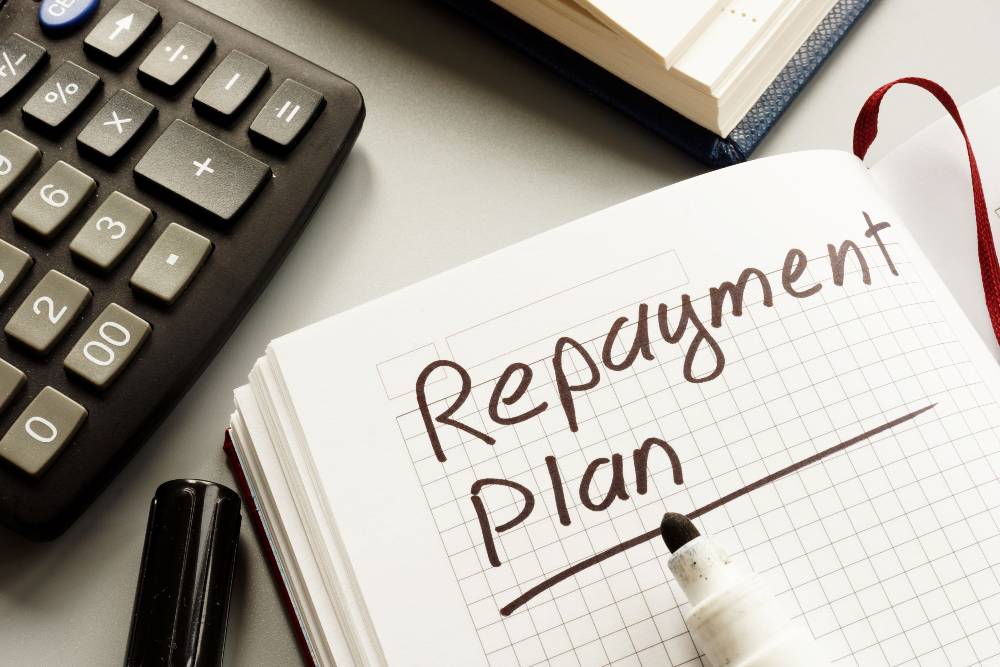Managing finances as a parent can be challenging. When unexpected expenses arise, and you need quick funds for medical expenses, urgent home repairs, or education costs, small personal loans can be an attractive option. But are they always the right choice?
Before you commit, it’s essential to weigh the benefits and drawbacks to ensure the loan aligns with your financial situation. Let’s discuss the advantages and pitfalls of getting one to help you make an informed decision.
Contents
The Pros of Small Personal Loans
Every financial tool has its strengths, and personal loans are no exception. Understanding these advantages can help you leverage these loans as a strategic economic resource for your family’s needs.
Quick Access to Cash
Life is full of surprises, and sometimes you need money fast. Many personal loan lenders offer same-day funding, which means you can receive loan proceeds in your bank deposit products within a business day. Availing yourself of small personal loans with no hassle can provide the financial relief you need, particularly during emergencies.
Flexible Terms and Loan Amounts
Unlike payday loans with triple-digit interest rates, personal loans come with more flexible terms. Loan repayment terms typically range from 24 – 60 months, allowing you to choose a schedule that fits your monthly income and budget. Lender approval often depends on your creditworthiness, and personal loan lenders offer various loan amounts based on your annual income and credit score.
No Collateral Required
Many small personal loans are unsecured loans, meaning you don’t have to put up your house or car as collateral. This can be a relief if you don’t want to risk losing assets. Secured loan options, such as home equity loans, offer lower rates but come with higher risks.
Debt Consolidation Benefits
If you’re struggling with credit card debt or student loan debt, a loan for debt consolidation might help. These loans combine multiple debts into one manageable monthly payment, often with a lower personal loan rate. Use a personal loan calculator to estimate potential savings and assess how the new loan fits into your financial situation. Additionally, making consistent monthly installments can contribute improving your credit score over time.
Competitive Interest Rates
Compared to credit cards, personal loans often have competitive interest rates. If you qualify for the lowest rates, you can save a significant amount over the loan term. Personal lines and installment loans usually offer better rates than payday loans or alternative loans.
The Cons of Small Personal Loans
Not all that glitters is gold, as the popular saying goes. Being aware of potential drawbacks can help you avoid financial pitfalls and make more informed borrowing decisions.
Credit Score Impact and Approval Process
Your credit history plays a major role in the approval process. Potential borrowers with scores below the minimum credit score requirement might find it difficult to qualify for a loan. Some lenders perform soft credit checks initially, but a hard inquiry can impact your credit approval and lower your credit score temporarily.
Additional Fees and Costs
Many personal loans come with origination fees, prepayment fees, and late payment fees. Some lenders also charge prepayment penalty fees if you pay off your loan early. Using a personal loan calculator can help you determine the actual rate and avoid surprises.
Higher Interest Rates for Bad-Credit Borrowers
Fair- and bad-credit borrowers often face higher loan interest rates. If your creditworthiness isn’t strong, you might not qualify for the most competitive rates. Some online lenders and credit unions offer refinancing options, but they may require additional documents such as proof of income and Social Security verification.
Potentially Long Repayment Terms
Carefully reviewing loan repayment terms is crucial. While extended-term loans might lower your monthly payment, they can increase the total loan cost over time. A 36-60 months repayment plan might seem manageable, but the longer the loan term, the more you’ll pay in interest.
Risk of Over-Borrowing
With quick access to funds, it’s tempting to borrow more than you need. However, taking out more than the minimum loan amounts necessary can lead to financial instability. Before applying, consider your major expenses and ability to make time payments.

Key Considerations Before Taking Out a Small Personal Loan
Knowledge is power when it comes to financial decisions. Arming yourself with the right information can help you navigate the personal loan landscape more effectively and protect your financial health.
- Assess your financial stability: Consider your monthly income, mortgage payments, and other financial obligations. A customizable loan with flexible payment options can help manage cash flow.
- Compare loan interest rate forecasts: Check the current loan market and forecasted changes in the federal funds rate. Competitive rates today might rise in the future.
- Understand the loan agreement: Carefully review the loan documents, including product availability and rate discounts. Many lenders offer rate discounts for current customers or those who set up automatic payments. Always ask about these potential savings.
- Look into refinancing options: If you already have a current loan with high interest rates, refinancing may offer better repayment terms.
Making the Right Choice
Understanding when a personal loan makes sense—and when it doesn’t—can be the difference between financial relief and financial stress.
Consider personal loans when:
- You have a clear, responsible plan for repayment
- The loan serves a genuine financial need
- You can comfortably manage the monthly payments
- The interest rates are competitive
Avoid personal loans if:
- You’re struggling with existing debt
- The loan would cover non-essential expenses
- The interest rates are prohibitively high
- You lack a stable income source
Final Thoughts
Small personal loans can be powerful financial tools when used wisely. They offer access to funds during challenging times, but they’re not a one-size-fits-all solution. Take time to research, compare lenders, and carefully assess your financial status before committing.
Always remember that the best financial decision is an informed one. Take your time and do your homework before choosing a loan product that truly supports your family’s economic well-being.



